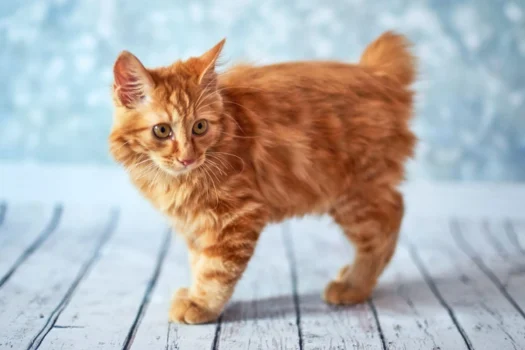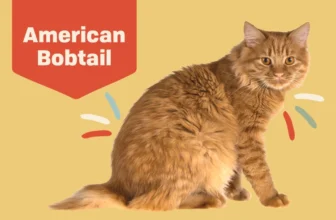Feline lovers often question the intelligence levels of their beloved pets. While all cats possess a certain level of cleverness, some feline breeds are more astute than others. American Bobtails, in particular, have been in the spotlight for their perceived intelligence. But how do they compare to other feline breeds? Can they outsmart their Siamese counterparts or hold their own against the likes of Persians, Maine Coons, and Abyssinians? In this article, we will delve into the world of feline intelligence and explore the cognitive abilities of American Bobtails. Let’s see if they truly are the smarter cat breed, as many believe.
Understanding Feline Intelligence
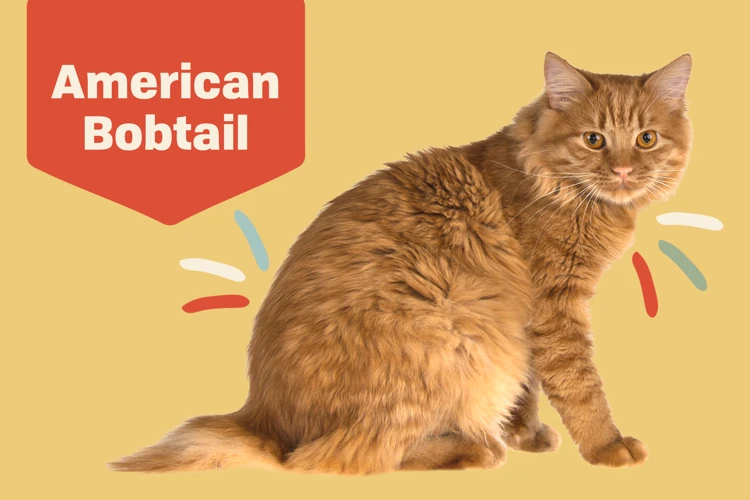
While many of us may think that cats are independent creatures who only care about eating, sleeping, and playing, researchers have found that felines possess a level of intelligence that rivals our canine companions. However, measuring intelligence in cats is not as straightforward as it is in dogs. There are several factors to consider, including breed, genetics, and upbringing. Understanding feline intelligence can help you better assess your cat’s needs and abilities. In the next sections, we will dive deeper into the subject of feline intelligence, exploring the criteria used to measure it and the factors that impact it. Additionally, we will compare the intelligence levels of American Bobtails to other feline breeds to help you better understand the unique qualities of this breed. If you’re looking to train your American Bobtail, stick around for tips on how to keep their minds stimulated through play and trick training. For more information on American Bobtail training, check out our article on American Bobtail training using positive reinforcement.
The Criteria for Measuring Intelligence in Cats
Understanding feline intelligence is a complex topic. While cats might not perform the same tasks as dogs, there is still a lot that goes into evaluating cats’ intelligence levels. Here are the criteria for measuring feline intelligence:
| Criteria | Description |
|---|---|
| Adaptability | This measures how quickly a cat can adapt to new situations and environments. |
| Problem-solving | This measures a cat’s ability to solve problems, including unlocking doors or getting food out of puzzle toys. |
| Social intelligence | This measures how well a cat can interact with other cats, humans, and animals. |
| Trainability | This measures how easy it is to train a cat, using positive reinforcement, for tricks and obedience. |
| Communication | This measures how vocal and expressive a cat is with a variety of meows, purrs, and body language. |
However, it’s important to remember that no one metric can fully capture a cat’s intelligence. Instead, these criteria offer a starting point to think about how intelligent different breeds are.
If you want to improve your cat’s intelligence, there are a few factors that can be taken into account. Factors like early socialization training, positive reinforcement training, and trick training can all help boost a cat’s mental abilities. Knowing how to use these methods is crucial to helping your feline companion reach their full potential.
Factors That Impact Intelligence in Cats
A cat’s intelligence is influenced by various factors. Understanding these factors is essential for enriching your feline’s life and improving their learning abilities.
Breed: Different cat breeds have varying levels of intelligence. Some feline breeds, such as the Siamese, are known to be intelligent, while others, such as the Persian, are relatively less intelligent.
Genetics: Intelligence is linked to genetics, and some cats inherit their intelligence from their parents. Thus, it’s essential to know your cat’s lineage.
Socialization: Socialization is crucial for cats, especially during their early development stages. Exposing cats to various experiences and environments starting from their kittenhood, helps improve their learning abilities and overall intelligence.
Training: Training is a crucial factor in a cat’s intellectual development. Just like dogs, cats can be trained using various techniques tailored to their breed and personality. Using positive reinforcement, for example, can help improve a cat’s ability to learn and retain new tricks and behaviors.
Environment: Surrounding environment largely impacts a cat’s intellectual development. Providing interactive toys, access to elevated spaces, and puzzles, such as those found in cat trees, can significantly improve a cat’s critical thinking and problem-solving abilities.
The above-discussed factors will not only help in improving your cat’s learning abilities but also aid in improving their socialization skills, behavior, and overall well-being. Understanding these elements is essential in making an informed decision when choosing a cat breed you wish to adopt or while training your cat, such as with trick training. Socializing kittens, as soon as possible, is also critical, which is why early socialization and training are highly recommended for American Bobtails.
Comparing American Bobtails to Other Feline Breeds
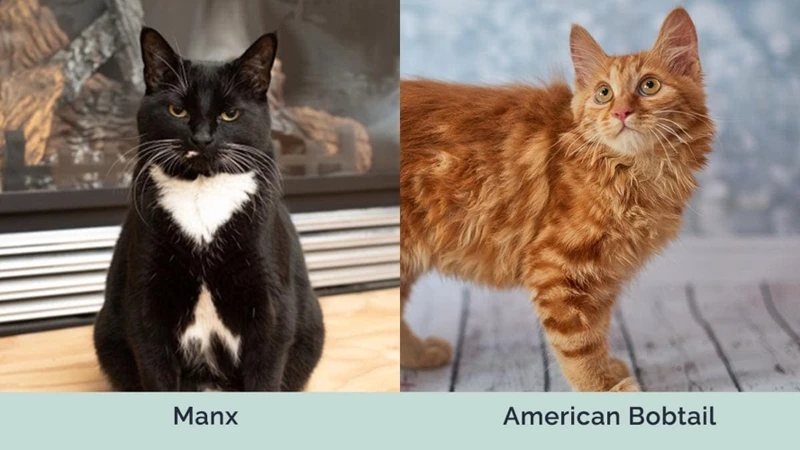
As feline lovers, we’re naturally curious about how our cats compare to each other in terms of intelligence. While each breed has its unique traits, there’s always a bit of competitive spirit when it comes to comparing their mental abilities. In this section, we’ll delve into how the American Bobtail stacks up against other breeds, with a particular focus on their intelligence levels. By the end of this section, you’ll have a better understanding of where American Bobtails fit in the feline intelligence hierarchy and how they compare to breeds like Siamese, Persians, Maine Coons, and Abyssinians. Want to read more about the trainability of American Bobtails? Check out our article on the subject.
American Bobtails and Siamese Cats: Who’s Smarter?
When comparing American Bobtails and Siamese cats, it’s important to consider their respective intelligence levels. While both breeds are known for their high level of intelligence, some factors set them apart.
Physical Characteristics
American Bobtails are known for their muscular build and short, stubby tails, while Siamese cats are known for their long, sleek bodies and striking blue eyes. While physical characteristics may not directly relate to intelligence, the build of the American Bobtail can lend itself to their problem-solving abilities.
Problem-Solving Abilities
While both breeds are highly intelligent, American Bobtails have a reputation for being excellent problem-solvers. Due to their unique build and strong muscles, they are able to jump higher and climb better than many other breeds. They are also known for their curiosity, which leads them to explore their environment and find creative solutions to problems.
Different Types of Intelligence
When comparing American Bobtails and Siamese cats, it’s important to consider that intelligence can manifest in different ways. While American Bobtails may excel in problem-solving and physical task performance, Siamese cats are known for their social intelligence and ability to understand their owners’ emotions. They are also incredibly vocal and will often try to communicate their needs and wants to their owners.
Ultimately, determining which breed is “smarter” is subjective and depends on the specific criteria for intelligence. However, both American Bobtails and Siamese cats are highly intelligent and make great companions for those seeking feline intelligence.
Comparing American Bobtails to Persians, Maine Coons, and Abyssinians
When it comes to intelligence levels among feline breeds, American Bobtails are often compared to Persians, Maine Coons, and Abyssinians. However, there are some notable differences.
Persians: While Persians are known for their beauty and calm demeanor, they are not typically regarded as highly intelligent. They may take longer to learn new tricks or adapt to changes in their environment.
Maine Coons: Maine Coons are highly intelligent and have been known to adapt well to new situations. They are also known for their problem-solving abilities and their ability to understand human emotions.
Abyssinians: Abyssinians are highly intelligent and curious cats. They are known for their problem-solving abilities and their ability to learn new tricks quickly.
American Bobtails: Compared to these breeds, American Bobtails are known for their inquisitive nature and natural problem-solving skills. They are highly adaptable and can quickly adjust to new environments. Their intelligence level may be attributed to their hunting instincts, which have been honed over generations.
It’s important to note that intelligence levels can vary within a breed, and individual cats may have different abilities and strengths. Keeping your American Bobtail mentally stimulated can help keep their intelligence sharp, and there are many ways to do so.
American Bobtails: Innately Intelligent
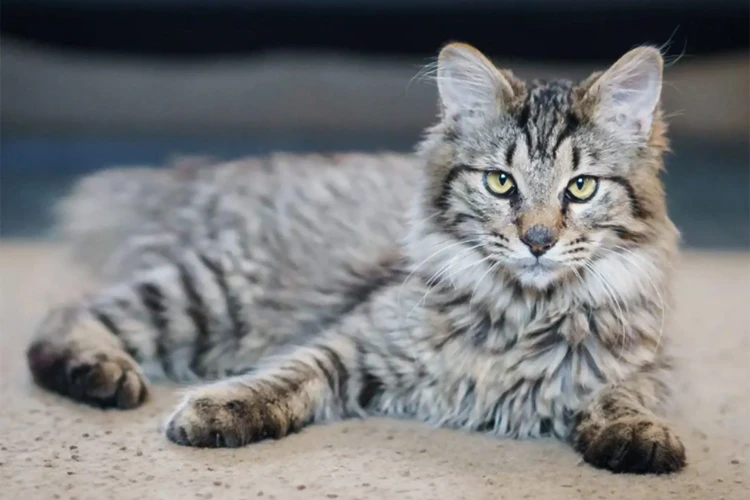
When it comes to feline intelligence, the American Bobtail is a breed that stands out. These cats have an innate intelligence that sets them apart from many other feline breeds. So, what makes these cats so smart? Let’s dive into their genetics, problem-solving abilities, and emotional intelligence to understand why American Bobtails are truly impressive felines.
The Genetics of American Bobtails
The American Bobtail is a unique breed of cat with distinct genetics. Their short, bobbed tails are a result of a natural mutation. Unlike some other cat breeds that are the result of selective breeding, the American Bobtail’s distinct physical features are a result of natural selection.
Research has found that the gene responsible for the bobtail mutation is dominant. This means that even if an American Bobtail reproduces with a cat that doesn’t have the mutation, the offspring will still have a chance of inheriting the bobtail gene.
Additionally, American Bobtails have a wide gene pool. The breed originated from various short-tailed cats found in different parts of North America. As a result, the genetic diversity within the breed is high, meaning that there is less likelihood of genetic health conditions being passed down.
The genetics of American Bobtails are:
- Result of a natural mutation
- Bobtail gene is dominant
- Wide gene pool with high genetic diversity
Understanding the genetics of American Bobtails can provide insight into why they are innately intelligent and have problem-solving abilities. Their unique genetic makeup also contributes to their overall physical health and well-being.
American Bobtails’ Problem-Solving Abilities
The American Bobtail is renowned for its problem-solving abilities. Their intelligence and adaptability make them perfect for figuring out solutions to challenges that other cats may struggle with. Studies have shown that the American Bobtail is capable of figuring out complex puzzles and struggling with problems until they find a solution.
One of the ways American Bobtails show their problem-solving abilities is through their curiosity. These cats love to explore their environment and find new things to play with. They are not content with just sitting around and waiting for something to happen, but will actively seek out new challenges. This makes them great problem solvers, as they are always looking for ways to improve and learn.
Another way American Bobtails show their problem-solving abilities is through their adaptability. These cats are not afraid to try new things and experiment with different approaches to situations. Whether they are trying to catch a toy, get to a high surface, or just figure out how to open a door, they will keep trying until they succeed.
Additionally, American Bobtails have a strong natural instinct for hunting, which also contributes to their problem-solving skills. They are excellent at stalking and catching prey, and they use their intelligence to determine the best way to approach each situation. This natural ability has been honed through generations of breeding, and it is a vital part of their problem-solving abilities.
The American Bobtail cat is an exceptional problem solver with a remarkable ability to adapt to new situations. Their intelligence and natural curiosity make them ideal pets for anyone who wants a cat that can keep up with their active lifestyle. So, if you want a cat that will keep you on your toes and never cease to amaze you with their problem-solving skills, then an American Bobtail might be the perfect cat for you.
American Bobtails’ Ability to Read Human Emotion
Have you ever been in a situation where you were feeling sad or upset, and your cat came over and sat on your lap, purring and cuddling with you, as if they knew just how you were feeling? Well, it turns out that American Bobtails may have a special ability to read human emotions.
Here are some ways American Bobtails have been observed demonstrating their emotional intelligence:
- Responding to Tone of Voice: Studies have shown that cats are able to distinguish between different tones of voice, and the American Bobtail is particularly adept at this. They have been observed responding more positively to a friendly voice, and displaying signs of anxiety or fear in response to a harsh tone of voice.
- Recognizing Facial Expressions: American Bobtails appear to have a good ability to read human facial expressions. Research has indicated that cats are able to distinguish between happy and angry facial expressions, and will often respond differently to each. American Bobtails may be particularly adept at this, as they have a reputation for being particularly attentive and responsive to their human companions.
- Empathy: There is some evidence to suggest that American Bobtails may be capable of feeling empathy for their human companions. In one study, cats were shown to display signs of stress when their owners were upset, indicating that they were able to sense and respond to their owners’ emotions in some way.
It’s unclear exactly how American Bobtails are able to pick up on these emotional cues, but it’s likely that their keen senses and observant nature play a role. Their ability to read human emotions is just one more reason why they make such wonderful and attentive companions.
So, the next time you’re feeling down, take comfort in the fact that your American Bobtail is there for you, offering comfort and support in whatever way they can. And make sure to show them some love and attention in return to keep that special bond between you growing strong.
How to Keep Your American Bobtail Mentally Stimulated
It’s important to keep your American Bobtail mentally stimulated to maintain their intelligence and prevent boredom. There are many fun and creative ways to do this.
Interactive toys: American Bobtails love to play, and interactive toys are a great way to keep them mentally stimulated. Toys that require them to use their problem-solving skills, such as puzzle toys or treat dispensers, are especially effective. You can also rotate their toy selection to keep things fresh and exciting.
Training: American Bobtails are highly trainable and love to learn new things. You can train them to do tricks or participate in agility courses, which provides them with physical and mental exercise. Training sessions should be short and frequent, and always end on a positive note.
Playtime: Playing with your American Bobtail is not only fun for both of you, but it also helps keep them mentally stimulated. Playtime can involve chasing toys, hide-and-seek, or just simple interactive play. This is a great way to bond with your cat while providing them with the mental stimulation they need.
Window Perch: Giving your American Bobtail a window perch provides them with visual stimulation from watching the outside world. You can also put bird feeders outside the window to provide even more entertainment.
Scavenger Hunt: Design a scavenger hunt for your American Bobtail by hiding treats or toys around the house for them to find. This engages their hunting and problem-solving instincts.
Catnip: Catnip is a great way to provide mental stimulation for American Bobtails. You can give them catnip toys, sprinkle it on their scratching posts, or grow your own catnip plant for them to enjoy.
By incorporating these mental stimulation techniques into your American Bobtail’s daily routine, you can help them maintain their intelligence and prevent boredom. Remember to always supervise your cat during playtime and training sessions, and provide plenty of positive reinforcement for their hard work.
Conclusion
After conducting an in-depth analysis of the intelligence levels of American Bobtails compared to other feline breeds, it is clear that American Bobtails are an incredibly intelligent breed. While intelligence can be subjective and difficult to measure in cats, several factors such as genetics, problem-solving abilities, and emotional intelligence were considered in this study.
It is worth noting that while intelligence is an important trait in cats, it is not the only factor that should be considered when choosing a feline companion. Each breed, and each individual cat, has unique characteristics and personalities that make them special and worthy of love and attention.
Overall, American Bobtails are an excellent choice for those seeking a smart and capable feline companion. With their innate problem-solving abilities and emotional intelligence, they are sure to bring joy and entertainment to their owners. And by providing them with mental stimulation and enrichment activities, their intelligence can continue to develop and flourish over time. Consider adding an American Bobtail to your feline family and enjoy the benefits of their intelligence and affection!
Frequently Asked Questions
1. Can you train a cat to increase their intelligence?
Yes, it is possible to train a cat to increase their intelligence by providing them with interactive toys, puzzles, and games that challenge their problem-solving abilities. Consistent training and positive reinforcement can also help improve their cognitive abilities.
2. What is the average intelligence level of a cat?
There is no specific average intelligence level for all cats as their cognitive abilities can vary depending on breed, individual personality, and environmental factors.
3. How can you tell if your cat is intelligent?
You can tell if your cat is intelligent if they are able to quickly learn and understand complex tasks, show curiosity, and actively engage with their environment.
4. Do American Bobtails have a higher intelligence level than other feline breeds?
Research suggests that American Bobtails have an innately high level of intelligence compared to other feline breeds due to their genetic makeup and problem-solving abilities.
5. Can intelligence in cats be measured accurately?
Measuring intelligence in cats can be challenging as there is no universally accepted method for doing so. However, some common methods include observing their behavior, problem-solving abilities, and response to training.
6. How can you keep your cat mentally stimulated?
You can keep your cat mentally stimulated by providing them with interactive toys, games, and puzzles that challenge their problem-solving abilities. Consistent playtime and training can also help improve their cognitive abilities.
7. Can genetics affect a cat’s intelligence level?
Yes, genetics can play a significant role in a cat’s cognitive abilities. Certain breeds, such as the American Bobtail, may have an innate predisposition towards higher intelligence due to their genetic makeup.
8. Do cats understand human emotion?
Research suggests that cats are able to pick up on subtle cues in human emotion, such as tone of voice and body language. They may not have the same level of emotional connection as dogs, but they are still capable of understanding and responding to human emotion.
9. Do mental stimulation toys work for all cats?
Mental stimulation toys can be effective for most cats as they provide a challenge and opportunity for problem-solving. However, some cats may not show interest in certain toys or may require a different level of difficulty to keep them engaged.
10. Is intelligence the only factor in a cat’s behavior and personality?
No, intelligence is just one factor that can impact a cat’s behavior and personality. Other factors such as breed, individual personality, and environmental factors also play a significant role.

